hemorrhoids or hemorrhoids are not a disease directly, but the slang term for a Hemorrhoid disease. Hemorrhoids themselves are natural cavernous bodies in the anus area. If the hemorrhoids build up with blood and its drainage is disturbed, one speaks of a hemorrhoidal disease. These knot-like bulges in the mucous membrane are accompanied by typical symptoms such as itching, burning pain, oozing and bleeding in the anal area.
What are hemorrhoids?

Even if most people don't know, everyone already has hemorrhoids. They are natural nodular cavernous bodies on the anus and the sphincter muscle. The hemorrhoids are supplied with blood and ensure a healthy and natural seal between the anus and the rectum. So hemorrhoids are not a disease. However, they can become inflamed, which then causes the familiar painful symptoms.
The well-known complaints under which the hemorrhoids are known should be described medically as hemorrhoidal diseases. Above all, the nodes are greatly enlarged and bulging and then cause painful reactions in the anal area.
causes
The causes for Hemorrhoid disease can be spacious. Constipation, obesity, and weak connective tissue are often the main causes. Especially when the anal area is under high pressure, such as with strong pressure during defecation. Hemorrhoids can be particularly common in chronic constipation.
Other causes are also predominantly sedentary activities and pregnancy. Haemorrhoids also occur more frequently in old age, as the sphincter muscle is often more slack in mature people than in younger people.
Symptoms, ailments & signs
The complaints and symptoms are divided into four stages. However, not all symptoms have to occur in every affected person in every stage, but it is just as possible that the symptoms relevant for one stage occur in the other stages. Even a slight burning sensation and itching in the anal area must be taken seriously, as these symptoms are often the first indications of hemorrhoids.
If there is no diagnosis and treatment, pain when sitting and when defecating occurs. In rare cases, especially if the enlargements of the lower rectal veins have been in existence for a long time, bleeding from them may occur. While the itching and burning sensation are considered uncomfortable, the bleeding should be taken very seriously.
With prolonged blood loss, the general condition of those affected worsens. It happens again and again that a hemorrhoid lump becomes infected. Then a firm, bulging lump develops, which causes severe pain. In stage one, the affected person often does not yet know that he has hemorrhoids, only sometimes notices some blood on the toilet paper.
Burning, itching and oozing occur in stage two, stage three is characterized by a foreign body sensation and the feeling of not being able to completely empty the bowel. Stage four is characterized by severe pain and major problems with bowel movements.
Course of disease
The course at enlarged hemorrhoids or. Hemorrhoid disease can be different. It depends on whether the person concerned seeks medical treatment, treats himself or simply does nothing and waits. It is more than advisable to consult a doctor about the hemorrhoids in order to prevent unwanted complications and severe pain in good time.
With untreated hemorrhoids, sore spots are mainly caused by the friction of toilet paper.These spots can ooze and form eczema or ulcers known as anal fissures.
In addition, wide-spread infections can spread as there are many bacteria, especially in the anal region. It is not uncommon for this to result in painful foci of pus and abscesses, which can then only be removed surgically. Likewise, when the hemorrhoids burst, unpleasant bleeding can occur, which must then be treated by a doctor.
Complications
The hemorrhoids cause various complaints that can severely limit the patient's everyday life. In most cases, severe and burning pain occurs, which is also associated with itching. The skin is reddened in the affected areas and the patient often finds blood in the stool. The bloody stool can also lead to panic attacks.
Furthermore, ulcers and eczema can develop, which are fraught with complications. The affected person also suffers from infections and inflammations in the anal region. Many people feel ashamed of their hemorrhoids, which can lead to inferiority complexes and decreased self-esteem. The treatment of hemorrhoids usually takes place without any particular complications and quickly leads to a positive course of the disease.
Mainly ointments and creams are used. The person concerned also has to pay attention to a healthy lifestyle. In serious cases, surgical interventions must be carried out, and there are no particular complications. After treatment, most of the symptoms will go away, and the patient's life expectancy will not be reduced by the hemorrhoids.
When should you go to the doctor?
A doctor should be consulted at short notice if there is any suspicion that haemorrhoids may be present. The first symptoms, such as burning or bleeding during bowel movements, should trigger a visit to the doctor. Many patients shy away from going to the doctor, especially when the level of suffering is not particularly great. Treatment is particularly uncomplicated in the early stages of the disease.
If the symptoms have progressed further, i.e. in addition to bleeding, itching and burning, hemorrhoids are already emerging from the anus, a specialist doctor should be consulted immediately. The hemorrhoids occasionally pull back on their own or can be pushed back by hand without major problems. However, without treatment, the symptoms of hemorrhoids will quickly worsen. Successful treatment is still possible in the later course of the disease, but the risk of incontinence also increases. In addition, the doctor will want to rule out other, much more serious diseases with similar symptoms, such as colon cancer.
Patients can either contact their family doctor who can come to an initial assessment. However, it makes more sense to go to a specialist directly. These are either proctologists who specialize in diseases of the rectum or urologists or dermatologists.
Doctors & therapists in your area
Treatment & Therapy
Treatment of hemorrhoids depends on the intensity of the complaints. Nevertheless, medical help should always be sought. Hemorrhoid ointments or hemorrhoid suppositories are usually successful for milder complaints. Surgical interventions can also be considered for large or very complicated hemorrhoids.
In addition to medical treatment with ointments and suppositories, a change in diet should ensure a softer stool. Likewise, all foods that induce constipation should be avoided. These include chocolate, red wine, and white flour products. Rather, attention should be paid to a diet rich in fiber. This can be achieved with a lot of raw vegetables (fruit and vegetables). Whole grain products are also good.
In addition, you should exercise more. Exercise, hiking, or gardening are best for this. You should also drink a lot. If possible, 2 liters per day. In addition to diet, hygiene also plays a central role in the treatment and recovery of hemorrhoids. Baths with chamomile extracts are very suitable for this. However, cosmetics and fragrances should be avoided as they only unnecessarily irritate the anal region.
prevention
Usually you can Hemorrhoids can be prevented by a balanced and fiber-rich diet, as well as by sufficient exercise, as these measures themselves ensure healthy and regular bowel movements. The doctor can also prescribe hemorrhoid ointments and anti-inflammatory suppositories. Surgical interventions can also be considered for large or very complicated haemorrhoidal disorders.
Aftercare
There are a few things you can do to help yourself with hemorrhoids. To alleviate the symptoms, hemorrhoid ointments, creams, suppositories, anal tampons or various home remedies such as hip baths can be used. The self-help measures will alleviate the symptoms, but they will not go away the hemorrhoids.
The cause of the appearance of the hemorrhoids must be determined so that they can be eliminated. In this case, the person concerned should see a doctor. He will then give the person concerned detailed advice and find ways and means to take action against the hemorrhoids. The family doctor can prescribe all ointments and creams for hemorrhoids, but it is advisable to see a proctologist.
This specializes in the treatment of diseases such as hemorrhoids and can provide targeted help. To prevent the hemorrhoids from worsening, the sufferer should be careful not to get constipated. To prevent this, a lot of exercise should be on the daily schedule. Go swimming or cycling, for example.
A balanced diet is also an important point. Those affected should drink at least 1.5 to 2 liters of water a day and consume plenty of fruit and vegetables. Care should be taken to ensure that cotton underwear is worn, as this is easier on the irritated skin.
You can do that yourself
In the case of hemorrhoids, those affected can use various methods and techniques to alleviate the symptoms in everyday life or to prevent illness in good time.
In principle, laxatives should not be used if there are problems or skin changes on the anus. In the event of itching, this should not be indulged in indefinitely, as this could lead to open wounds and the spread of germs. Anal intercourse and the use of love toys for the anus should also be avoided if possible, as this can also damage the skin. Caution is advised when using the toilet. Adequate rest and a prior intake of [[fluid balance fluid] are helpful. Do not strain or press hard during bowel movements.
There should be sufficient exercise during the day. Overloads and excessive loads should, however, be avoided. The food ingested should be rich in vitamins and high in fluids. All foods that can cause constipation should be avoided. They include bananas, white bread, potatoes and rice. For hemorrhoids, dietary fiber such as muesli, whole grain bread, fruit, and oatmeal is recommended.
Wearing tight clothing in the genital area should be avoided. Garments with synthetic fibers must also be exchanged for garments containing cotton. The abdomen must be adequately protected from the effects of cold.

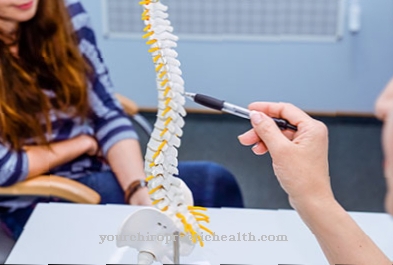
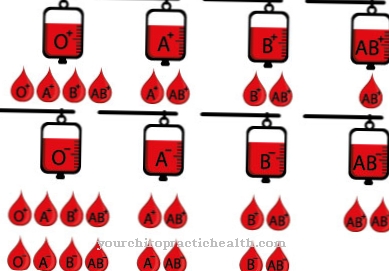
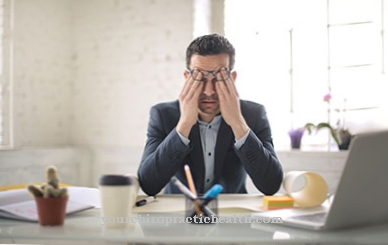

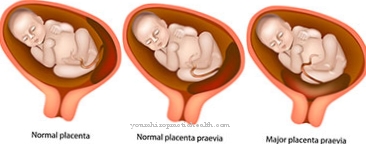
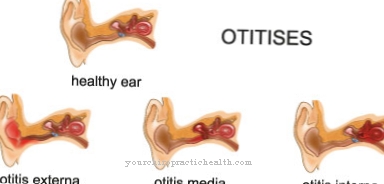

















.jpg)



